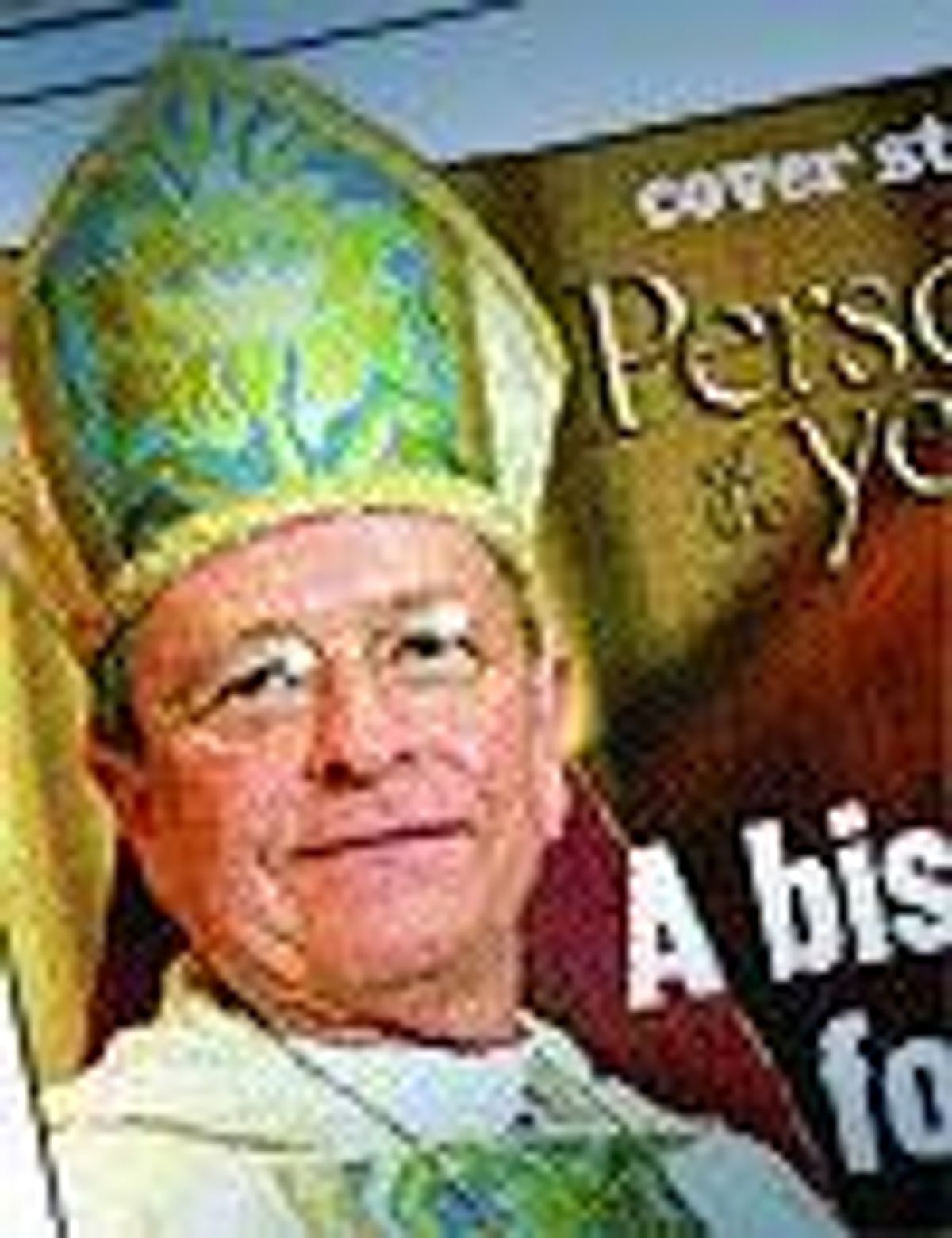The first openly
gay bishop in the Episcopal Church is predicting that
the Anglican Communion will splinter, two years after U.S.
church leaders triggered global outrage by approving
his election. "This is at least as much about power
and control as it is about theology and Scripture,"
New Hampshire bishop V. Gene Robinson told the Associated
Press in an interview. "It's about who's going to be calling
the shots and who's going to be in and who's going to
be out."
At stake is how 77 million Anglicans around the
world, including 2.3 million members of America's
Episcopal Church, define their religion and their
relationship to one another. Robinson said he underestimated
the opportunity his election gave conservatives to
organize within the Episcopal Church and the Anglican
Communion, of which it is a part.
Until about six months ago, Robinson remained
optimistic that the Anglican Communion would work
through the initial outrage over his election to
respect the customary right of dioceses to elect the
bishop of their choosing. But at a private meeting of
American bishops in Los Angeles several months ago,
Robinson said, he first sensed what he considers a
conservative power grab.
Robinson came to discuss reconciliation, he
said, but several opponents had a different goal. "I
said, 'I'm here to talk about how we can live
together.' And three or four of them said, 'I'm not here for
reconciliation. I'm here to divvy up the property from this
divorce,"' he said.
One participant was Pittsburgh bishop Robert
Duncan, leader of the Network of Anglican Communion
Dioceses and Parishes, which rallies the conservative
minority of Episcopalians. "This is not a power play,"
Duncan said in a telephone interview Thursday, "except in
the sense that Bishop Robinson's position in the church is a
total innovation in the life of the church and what we
face are two positions that can't be put together."
Duncan's network and allied American Anglican
Council believe homosexual activity is so clearly
counter to the will of God expressed in the Bible and
Anglican and Christian tradition that there can be no
reconciliation without repentance, no agreement to
disagree. The crisis can be resolved only by uniting
around common beliefs, Duncan said.
The Nigerian church just changed its
constitution to do exactly that, removing words
linking it to the Church of England and replacing them
with a call to communion with churches that "hold and
maintain the historic faith."
This represents a major change. For centuries,
Anglicans have defined themselves by historic ties to
the Archbishop of Canterbury. The 38 autonomous
churches have no authority--only powers of
persuasion--to affect one another.
Robinson sensed a split was imminent after
watching Nigerian archbishop Peter Akinola denounce
church leaders in the United States, Canada, and
England for failing to condemn homosexuality. Anglican
leaders on both sides agree that Robinson's election
merely deepened a pre-existing split.
The Episcopal Church has been developing a more
liberal theology on many levels, placing it at odds
with conservatives in Africa, Asia, and Latin America
and some within its own U.S. ranks. Tensions have grown as
non-Western churches expand memberships.The Reverend Martyn
Minns, an American Anglican Council board member,
notes that the U.S. church confirmed Robinson despite
being asked not to by international leaders. "It shows
no respect whatsoever," Minns said. Overseas Anglicans,
already concerned about American political power, saw this
as evidence of U.S. arrogance and immorality, he said.
Robinson said he wants to reconcile with
opponents but not by leaving a post he was properly
elected to. He was chosen in June 2003 from a field of
four candidates, garnering support from more than 75% of New
Hampshire's clergy and a majority of lay delegates. The
bishop remains convinced that gays and lesbians will
be fully included in the Episcopal Church someday and
his opponents will be unable to prevent this, even if
larger Anglicanism does divide.
"In the [last] two years, I am only more
convinced about it," he told the AP this week. "This
has been the most wonderful thing that has ever
happened to me--not the status--but this moving,
astounding role that for some reason known only to
God, I've been asked to play." (AP)















































































